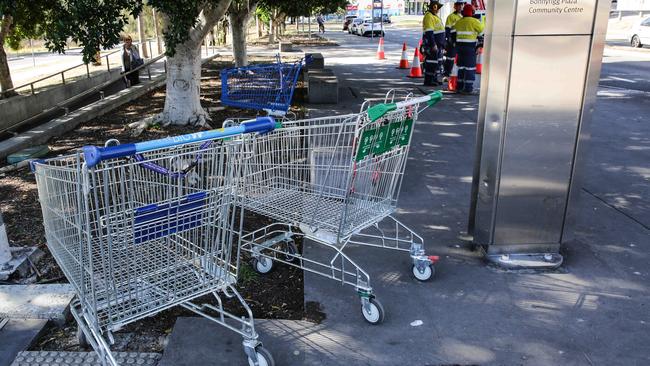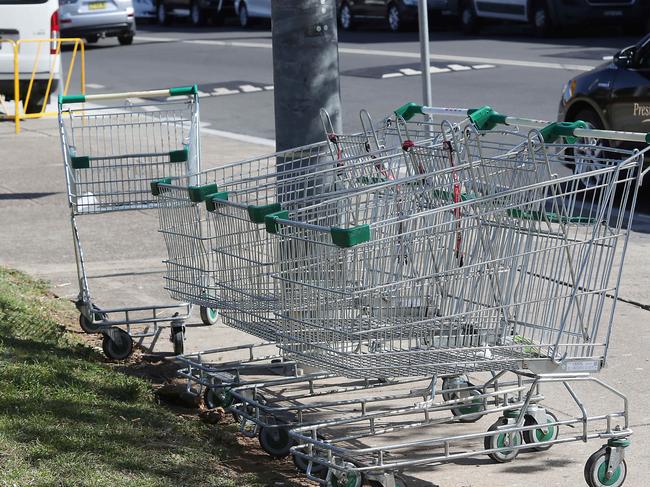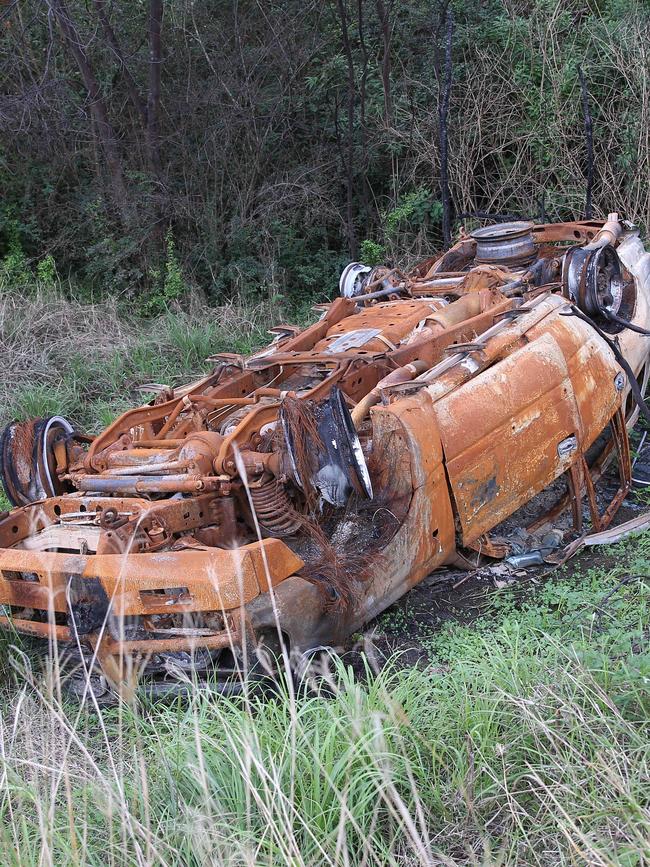Supermarkets, illegal dumpers face bigger fines in impound overhaul
Careless supermarkets, dodgy pet owners, arrogant boat owners and other serial dumpers are in the sights of the state government amid the first overhaul of impounding laws since 1993, where retailers and individuals could face tougher fines.
NSW
Don't miss out on the headlines from NSW. Followed categories will be added to My News.
- Sydney village to become ‘ghost town’ with new cemetery
- CBD’s tallest building will be overtaken within two years
Supermarkets could be fined for rogue shopping trolleys for the first time and illegal dumpers hit with harsher penalties under a major review of impounding laws.
Motorists who park across driveways, negligent owners of exotic pets and careless boat owners taking advantage of generous grace periods could also be in the firing line.
A discussion paper obtained exclusively by The Sunday Telegraph reveals a host of bureaucratic loopholes local councils argue prevent them from clamping down on offenders under the Impounding Act 1993.

MORE FROM BEN PIKE
Parking fines: Sydney councils’ top 60 streets
Salim Mehajer: Former mayor Ronney Oueik slams deputy
With urban overcrowding becoming a bigger issue, NSW Local Government Minister Shelley Hancock said she was declaring war on retailers and illegal dumpers.
“For too long rogue trolleys have plagued our streets, parks and waterways and it’s time we consider shifting the onus from councils and onto retailers to clean up their mess,” she said.
“The review also presents a real opportunity to consider whether there is a better way to hold individuals and businesses to account who are responsible for items being dumped.

“While we have amended the act to address specific issues caused by share bikes and boat trailers, the review will also future-proof communities from emerging technologies and reflect our ever-changing use of public spaces.”
Fine amounts are currently set at $550 for abandoning a motor vehicle, $500 for abandoning a shared device (shared bike for example), $330 for abandoning an animal and $220 for abandoning any other item.
These fines could increase, with the discussion paper explicitly asking whether there should be “incentives” or “higher penalties for corporations” and individuals who abandon trolleys.
After impounding 6500 trolleys, Hornsby Council got Coles, Woolworths and Westfield Hornsby to install wheel-lock technology in September this year.
Liverpool Council CEO Kiersten Fishburn said their council picked up 1000 trolleys in October alone and have long advocated “to allow councils to fine retailers for abandoned shopping trolleys”.
Coin-operated trolleys are mandatory in ACT and retailer ALDI has a coin-operated system since 2001.
A Woolworths spokeswoman said their dedicated collection contractors “respond quickly to reports of abandoned trolleys to return them to our stores within 24 hours”.
“They also conduct regular sweeps for abandoned trolleys in the streets surrounding our stores,” she said.

A Coles spokeswoman said they also regularly collect stray trolleys.
“We are always reassessing our trolley management and will take local feedback into account when deciding what methods to employ at any of our stores, including the use of coin locks and electronic wheel lock systems,” she said.
In a show of just how toothless current laws are, there was 1645 penalty notices issued in 2018-19 for abandoned vehicles in NSW.

Yet the Snap Send Solve app – which sends people’s pictures of abandoned items to the appropriate authority – logged more than double that amount of abandoned cars (3373) in Greater Sydney alone in 2019.
The discussion paper revealed motorists often get away with parking across driveways, for example, because authorities don’t have clear powers to remove vehicles, as they have with share bikes.
Currently, the owners of abandoned cars must be notified in writing about intentions to remove their vehicle. Councils are calling for email/SMS notification to be sufficient.
Many owners also choose not to collect low-value impounded items – including animals – meaning councils struggle to recover costs.
The head of Sydney’s biggest council, Canterbury-Bankstown Mayor Khal Asfour, said they impound about 1000 cars every year and need “a bigger stick” to save ratepayers from footing the bill.
The review is also designed to future proof laws relating to emerging technologies such as electric scooters, which are currently illegal but widely available in other states.
In a little known loophole, impounding laws do not apply to exotic animals, including alpacas.

This led to Mid-Western Regional Council having to resort to more obscure rules to impound a group of rogue alpacas earlier this year.
The matter ended up in the NSW Civil and Administrative Tribunal in October, with the council eventually winning out.
Councils are calling for the law’s definition of “animal” to be expanded.
Another key concern is the required notification period of 15 days after an impounding officer identifies a boat trailer has been left for 28 days.
Councils believe this creates a disincentive for prompt action by boat owners as they can park in one spot for 43 days.
An Inner West Councils spokeswoman said they’ve had mixed success in trying to remove boat trailers from certain problem locations.
“In some locations it just pushed the boats to nearby surrounding streets,” she said.
“Unfortunately without more powerful legislation which would apply to all public roads, parking restrictions are the primary method to prevent long-stay parking of boats and trailers.”
